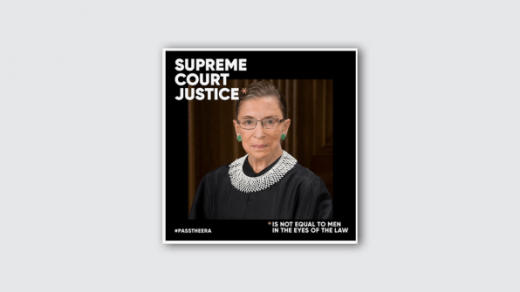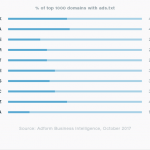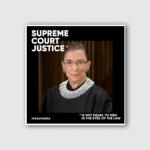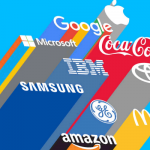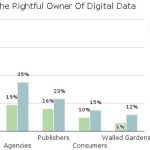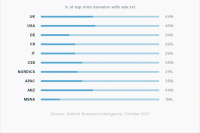These Clever Ads Remind You That The Constitution Still Doesn’t Guarantee Women Equal Rights
By Ben Paynter , August 25, 2017
August 26 is Women’s Equality Day, which traditionally celebrates the 1920 ratification of the 19th Amendment that granted women the right to vote. This year, a handful of irreverent ads will begin circulating on social media, paying homage to that achievement, but pointing out that the battle for gender equality has strangely stopped short.
One black and white poster modifies with the word “women,” to read “woMEN” in an extra large font. Another does that same thing with “she”; each letter is capitalized but faded in a way that makes only “HE” visible. Both of those share the same message in smaller print: “Today is Women’s Equality Day, but the U.S. Constitution still doesn’t guarantee equal rights for women. #PassTheERA.”
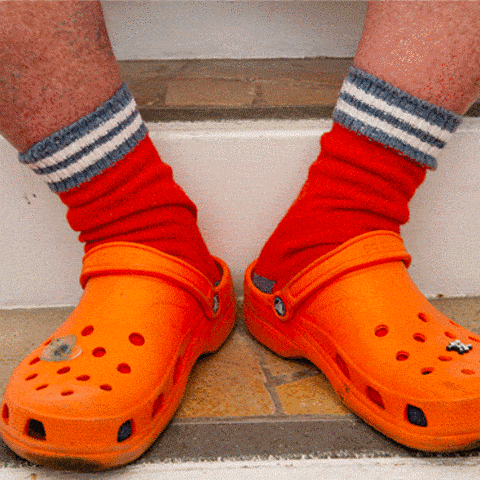
That hashtag refers to the Equal Rights Amendment, a constitutional fix proposed as far back as 1923, which would guarantee women the same rights as men under state and federal law. In order to become official, an amendment needs to win a two-thirds majority in both houses of Congress, and then be ratified by 75% of the states (38, in total). The ERA finally passed federal approval in 1972, but with an arbitrary clause limiting states to a 10-year period to ratify it. A decade later, the ERA was stalled, with only 35 states’ approval, effectively killing the legislation.
According to a recent poll, 80% of Americans don’t know that women aren’t afforded specific equal protection under the law. That perception is far from the legal reality, which in many cases affords protection from sex discrimination only through precedents set by case laws when women who are victimized by things like gender-based violence, wage inequality, and pregnancy discrimination have sued and won.
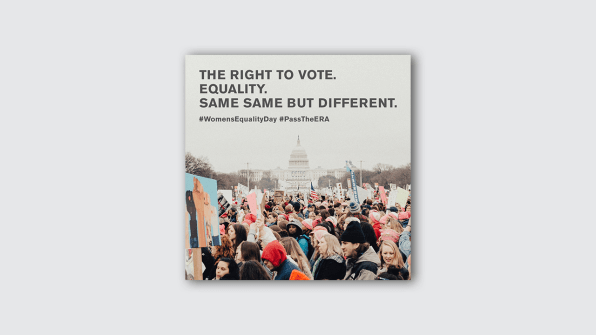
It still doesn’t always work out: In the mid-’70s, after the Supreme Court ruled that pregnancy discrimination wasn’t a form of sex discrimination, Congress passed the Pregnancy Discrimination Act, which doesn’t address that women can be fired for things like taking extra bathroom breaks and aren’t afforded the same workplace protections as people with disabilities. It took another Supreme Court case in 2015, for instance, to make it clear that a pregnant woman at UPS shouldn’t have been required to lift heavy boxes by herself.
Women who make future legal complaints have to follow these narrow legal pathways, rather than proactively asking for the sort of preventative social and judicial reforms that a universal ruling might enable.
The ERA Coalition, a nonprofit advocacy group, hopes to change that by raising awareness of what’s missing and to push for Congress to again take up the ERA. “Really this is not that controversial,” says ERA Coalition President Jessica Neuwirth. “Women are not second-class citizens.” And misogyny is hopefully not what it once was either: “Maybe when the Constitution was written they were intentionally left out, but it’s time to put them in with more than just the right to vote.”
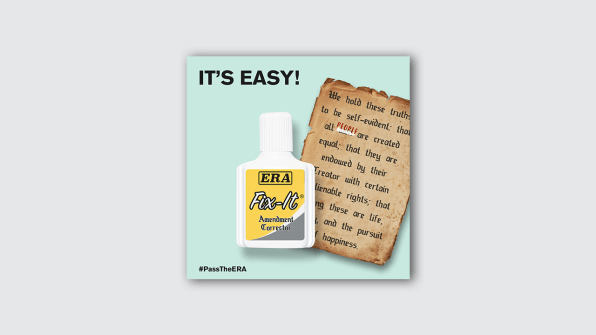
The first hurdle in that plan is public awareness. The ERA Coalition, which started in 2014, includes the National Organization For Women, Feminist Majority, YWCA, and GLAAD among nearly 30 equality rights organizations. It commissioned Enso, a creative agency working pro bono, figure out how to attract more people to the cause.
Enso began with a series of polls to gauge public awareness and sentiment. The agency found that most people don’t understand the legal necessity of the ERA, and that 94% of people (of both parties) would support the amendment. Next, Enso held a hackathon-style event in Los Angeles, gathering dozens of other designers and creatives to create catchy images, GIFs, and tweets that might go viral.
Some of the results–which you can find in a shareable format on the ERA Coalition’s web page–rolled out around Independence Day as part of a social media rally that reached 13 million people on Twitter and many more across Facebook and Instagram.
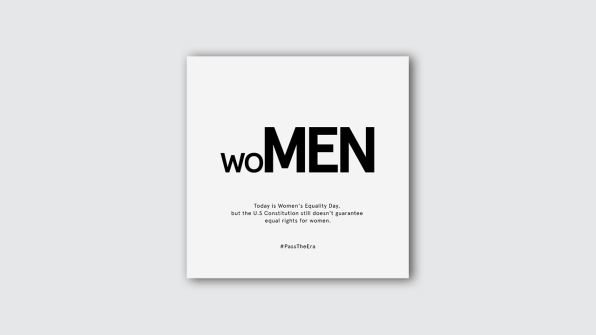
The most popular ad on Twitter was a photo of Ruth Bader Ginsburg in judicial robes. Her title, “SUPREME COURT JUSTICE*” had that asterisk for a footnote: “*IS NOT EQUAL TO MEN IN THE EYES OF THE LAW.” Another ad shows a shopping list with milk, bananas, cereal, and equal rights written down. Only the first three are crossed off. The most popular on Instagram was an image of the Constitution being facetiously spelling and grammar checked in a Word doc. The program is tripped up on the phrase “all men are created equal” and suggests “people” as a better pronoun.
The goal now is to raise enough public awareness to push for new movement: The amendment continues to be proposed in Congress, so it could be passed and sent to states to approve again, this time without a time limit. Or states could ratify the old amendment even though it’s past deadline, which might lead a renewed federal push to modify the time clause in that old legislation. (The argument being that getting the few remaining states aboard might be faster and justify that action.)
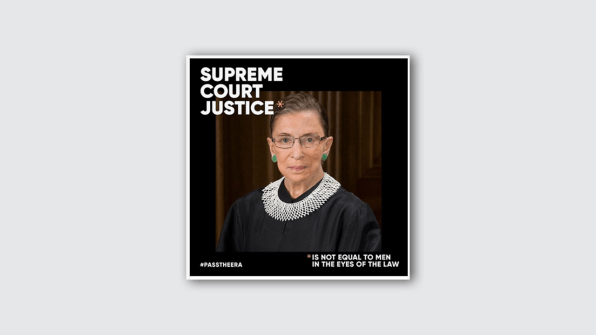
In the meantime, ERA supporters are making their case a variety of ways: Neuwirth has written a book about the issue; another activist made a powerful documentary called Equal Means Equal. The coalition has also done a celebrity comedy show, and are hawking a charity T-shirt with a young Gloria Steinem and Dorothy Pitman Hughes raising fists in solidarity. “I think we just want to get it in people’s minds. And if we can use art or music or comedy all the better. It just makes it more engaging and it makes people want to be part of it.”
In March, Nevada became the first state to ratify the old amendment since the deadline expired in 1982. A Change.org petition started by Patricia Arquette is just 20,000 signatures away from its the 150,000 goal, at which point it will be delivered to various state and federal officials. The ERA Coalition’s site also has a map of contested states and suggested tweets and phone call scripts for those looking to contact officials.
There’s plenty more content for people to share this weekend, too. As another of the ready-made ads featuring a pink message over blurry fireworks puts it: “Um . . . Happy Women’s Equality Day?”
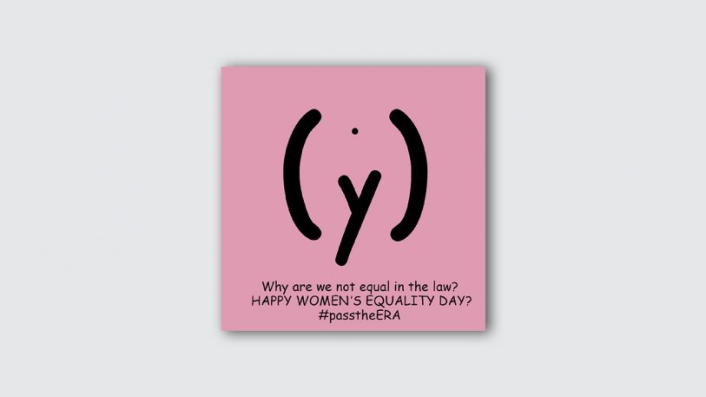
Click through this slideshow to see a selection of the campaigns ads. [Image: courtesy of the #PassTheERA Shared Mission Initiative]
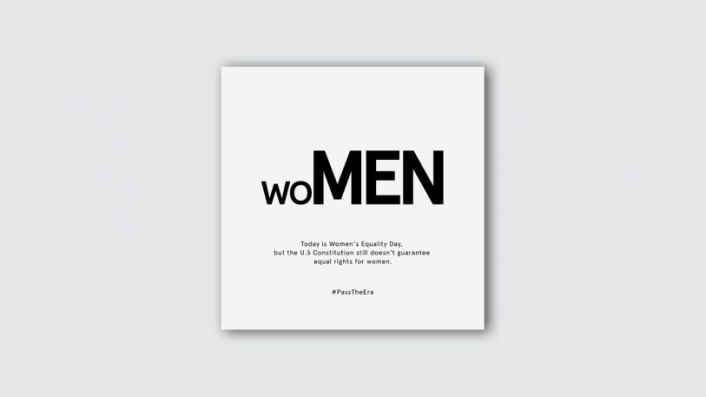
[Image: courtesy of the #PassTheERA Shared Mission Initiative]
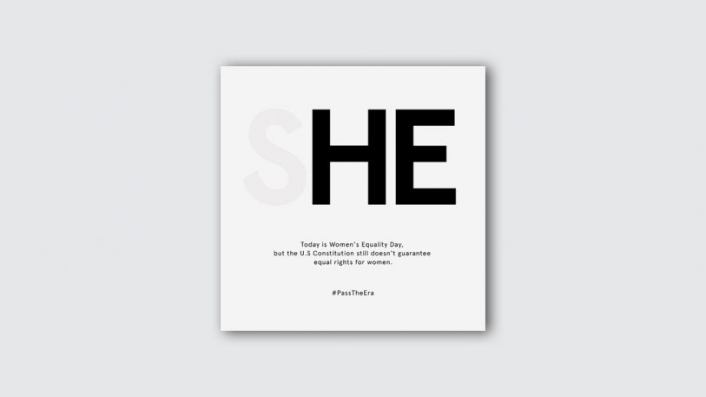
[Image: courtesy of the #PassTheERA Shared Mission Initiative]
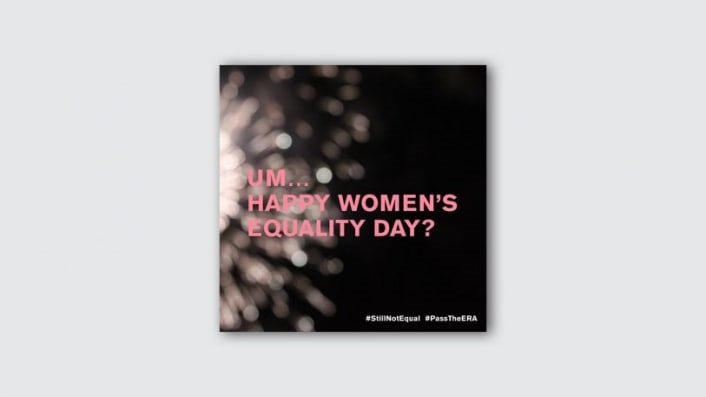
[Image: courtesy of the #PassTheERA Shared Mission Initiative]
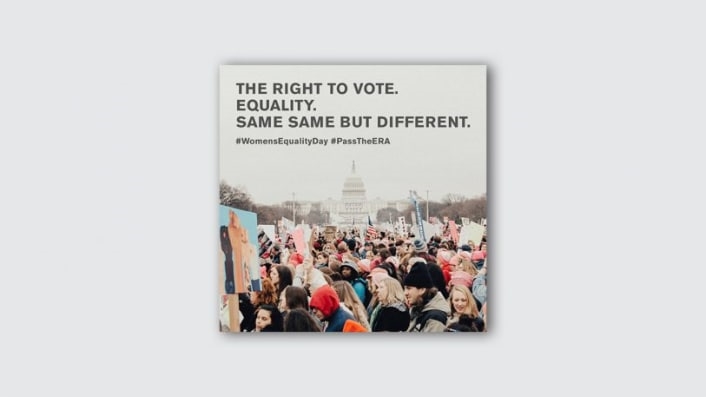
[Image: courtesy of the #PassTheERA Shared Mission Initiative]
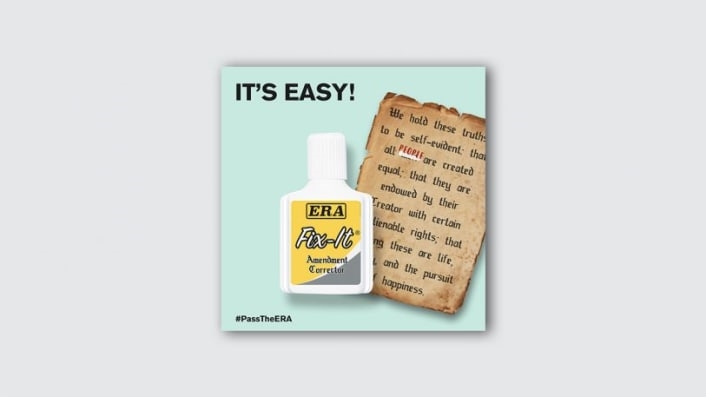
[Image: courtesy of the #PassTheERA Shared Mission Initiative]
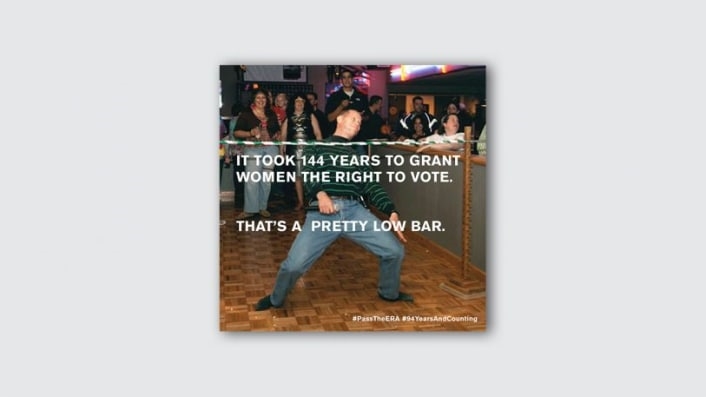
[Image: courtesy of the #PassTheERA Shared Mission Initiative]
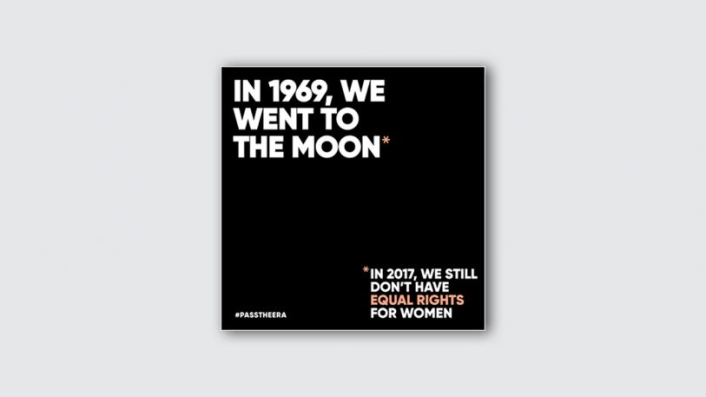
[Image: courtesy of the #PassTheERA Shared Mission Initiative]
Fast Company , Read Full Story
(279)

